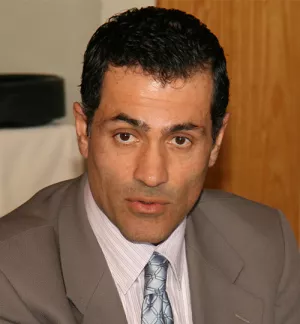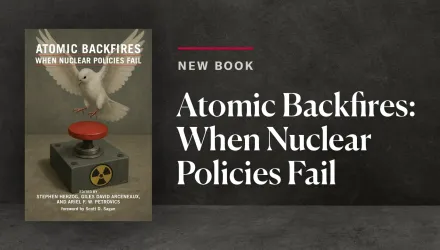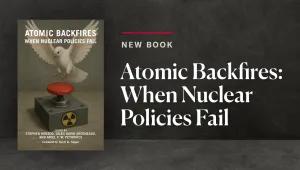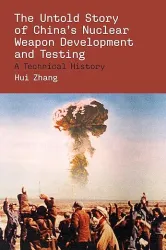As Iran crosses successive nuclear demarcations and mischievously intervenes in Iraq, the question of how to address the Islamic republic is once more preoccupying Washington. Economic sanctions, international ostracism, military strikes and even support for hopeless exiles are all contemplated with vigor and seriousness. One option, however, is rarely assessed: engagement as a means of achieving a more pluralistic and responsible government in Tehran.
The all-encompassing nuclear debate comes as Iran's political landscape is changing once again. As America became reconciled to a monolithic Iran, represented by President Mahmoud Ahmadinejad and his brand of rambunctious politics, the results from December's local elections suggest Iranians were doing otherwise. Ahmadinejad's defiant rhetoric and populist posturing did not impress the Iranians who turned out in large numbers to elect city councils and members of the Assembly of Experts. Voters favored pragmatic conservatives and reformers who oppose their president's policies abroad and his economic programs at home. Despite this show of dissent, though, it would be a mistake to assume that Iran's regime is about to fall or that a democratic spring is looming.
Iran has long appeared ready for democracy. It has a literate, youthful population that is immersed in world culture, is at home on the Internet, is keen to engage the West and is above the anti-American anger that dominates the Arab street. No other Middle Eastern country has as much civic activism or a population that has voted as often in elections at various levels. But positive social and cultural indices have so far not translated into a political opening. Iranian society may be ready to embrace democracy, but Iranian politics is not ready to accommodate it.
Iran does not have an organized pro-democracy movement. The reformers who were swept to power in 1997 never coalesced around a coherent platform, nor did they produce a political party. Their movement inspired activism and student protests, and it changed the style and language of politics, but its lack of organization ultimately cost it the presidency in 2005. Reformism was popular but politically ineffective.
The clerical regime has also proved to be enterprising in facing demands for reform, particularly by using elections to manage opposition within the bounds of the Islamic republic. Economic isolation, supported by international sanctions, has kept the private sector weak, which has in turn denied supporters of change levers they could use to pry open the regime. The public sector accounts for more than 80 percent of the Iranian economy, and the constitution gives the clerical leadership most of the power. The problem facing democracy is not so much the state's theocratic nature as it is the enormous domination it enjoys over the economy, society and politics. For democracy to succeed, the state's domination of the economy and society must be reduced.
For too long, Washington has thought that a policy of coercion and sanctions applied to Iran would eventually yield a responsible and representative regime. Events in the Soviet Union and Eastern Europe suggest that containment eventually generates sufficient pressure to force autocratic elites to accommodate both international mandates and the aspirations of their restless constituents. Ironically, though, U.S. policy has buttressed the Iranian regime, which has justified its monopoly of power as a means of fending off external enemies and managing an economy under international duress.
More than sanctions or threats of military retribution, Iran's integration into the global economy would impose standards and discipline on the recalcitrant theocracy. International investors and institutions such as the World Trade Organization are far more subversive, as they would demand the prerequisites of a democratic society -- transparency, the rule of law and decentralization -- as a price for their commerce.
Paradoxically, to liberalize the theocratic state, the United States would do better to shelve its containment strategy and embark on a policy of unconditional dialogue and sanctions relief. A reduced American threat would deprive the hard-liners of the conflict they need to justify their concentration of power. In the meantime, as Iran became assimilated into the global economy, the regime's influence would inevitably yield to the private sector, with its demands for accountability and reform.
It is important to appreciate that Iran has a political system without precedent or parallel in modern history. The struggle there is not just between reactionaries and reformers, conservatives and liberals, but fundamentally between the state and society. A subtle means of diminishing the state and empowering the society is, in the end, the best manner of promoting not only democracy but also nuclear disarmament.
Nasr, Vali. “The Iran Option That Isn't On the Table.” The Washington Post, February 8, 2007





